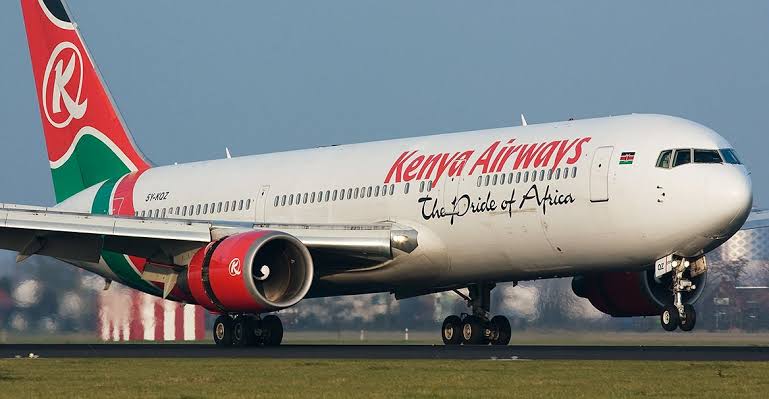
Kenya Airways plane Photo | courtesy.
Kenya Airways (KQ) has slipped back into losses in the first half of 2025 following the grounding of three aircrafts and supply chain setbacks that derailed last year’s recovery.
The national carrier made a net loss of Sh12.15 billion, reversing from Sh513 million profit after that in the first quarter of 2024. KQ said the low performance is attributed to the grounding of its large-capacity aircrafts in the first six months of this year.
“The first half of 2025 was defined by industry-wide challenges that directly impacted our performance, particularly the grounding of three of our aircraft. While the financial results reflect these headwinds, we have taken decisive actions to stabilize operations and protect the long-term resilience of Kenya Airways,” CEO Kilavuka said in a statement.
The airline’s renewed struggle is tied closely to operational struggles resulting from the inoperability of two Boeing 787 Dreamliners due to delayed spare parts from major manufacturers such as Boeing.
ALSO READ: ViFi Labs Acquires Uganda’s OneRamp to Boost Stablecoin Payments Across Africa
Earlier, KQ CEO Allan Kilavuka expressed concern over the operational strain, noting the airline “lost an entire peak season” as cancellations mounted. Earlier in the year three of KQ’s nine Dreamliners were grounded, shrinking the fleet and throttling capacity at a critical time.
Currently, KQ operates 42 aircrafts which is below its 50-plane threshold needed to spread operational costs and absorb global shocks. While one grounded Dreamliner has resumed service, the remaining two are expected back by November and December 2025.
Kilavuka said the airline had a plan to expand its fleet by adding four narrow-bodied aircrafts but has since managed one. Additionally, global supply constraints remain a formidable obstacle, with new Dreamliners or Airbus models reportedly taking over seven years to procure if ordered today.
“This year, we expected to onboard four narrow bodies but have only managed to do one, a Boeing 737-800 due to a shortage in the global market,” Kilavuka said.




